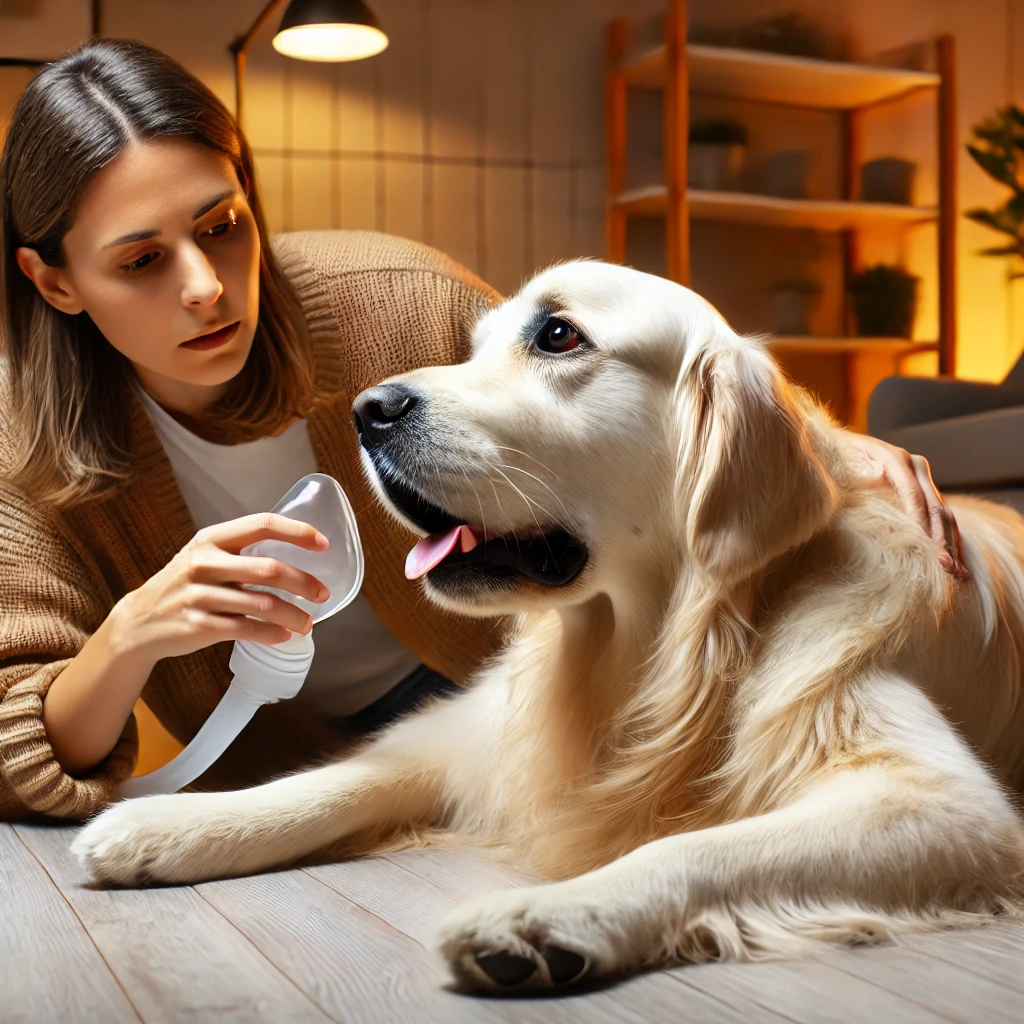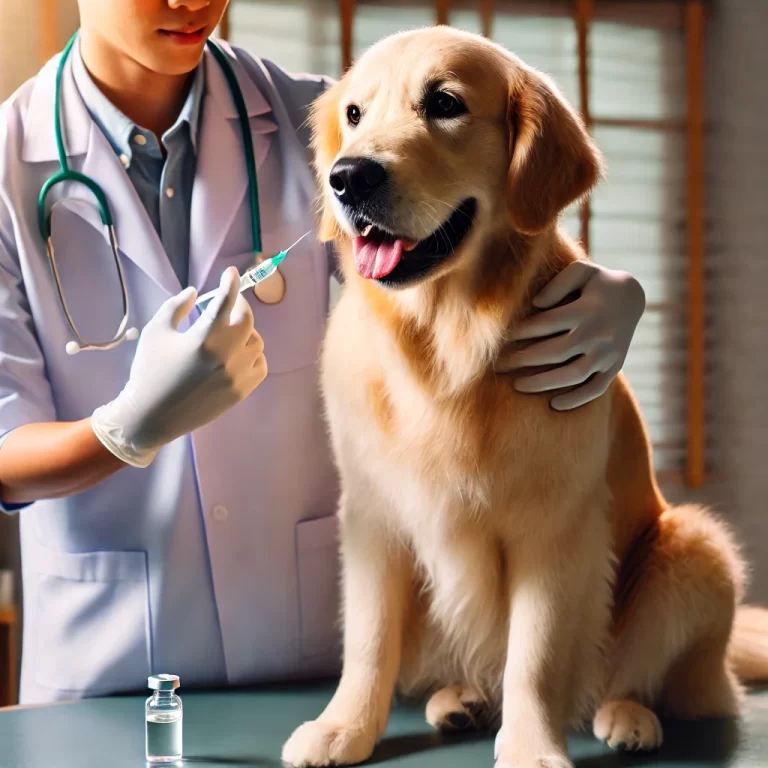Why Is My Dog Breathing Heavy?
Dogs pant and breathe heavily for many reasons—some are completely normal, while others may signal a serious health issue. If you’ve noticed your dog breathing heavily and aren’t sure if it’s normal or a cause for concern, this guide will help you understand the potential reasons behind it.
Normal Reasons for Heavy Breathing in Dogs
Before you panic, it’s important to know that dogs naturally breathe faster or pant in certain situations. Here are some common, non-threatening reasons your dog may be breathing heavily:
1. Heat and Temperature Regulation
Unlike humans, dogs don’t sweat through their skin. Instead, they regulate body temperature primarily through panting. If your dog has been outside in warm weather, exercising, or playing energetically, heavy breathing is their natural way of cooling down.
What to Do:
- Ensure your dog has access to fresh water and shade.
- If they seem overheated, bring them inside and cool them down with a fan or damp towel.
2. Excitement or Stress
Dogs often breathe heavily when they’re excited, anxious, or stressed. If your dog breathes rapidly when greeting you, meeting new people, or during fireworks and thunderstorms, it’s likely due to excitement or anxiety.
What to Do:
- Try calming techniques, such as gentle petting or speaking in a soothing voice.
- Provide a quiet space or calming toys to help ease their anxiety.
3. Physical Activity
Just like humans, dogs breathe heavier after running or playing. This is a natural response to increased oxygen demand in their muscles.
What to Do:
- Allow your dog to rest after exercise.
- If they return to normal breathing within 10-15 minutes, there’s nothing to worry about.
Medical Causes of Heavy Breathing in Dogs
If your dog is breathing heavily without an obvious reason, it could indicate an underlying health issue. Here are some potential medical causes:
1. Heatstroke
Heatstroke is a life-threatening emergency that occurs when a dog’s body temperature rises dangerously high. Heavy, rapid breathing is an early symptom, often accompanied by drooling, weakness, and even collapse.
What to Do:
- Move your dog to a cool area immediately.
- Offer small amounts of cool (not ice-cold) water.
- Use damp towels to help lower their body temperature.
- Seek emergency veterinary care if symptoms persist.
2. Respiratory Problems (Pneumonia, Asthma, or Infection)
Dogs suffering from lung infections, asthma, or pneumonia may struggle to breathe properly. This can cause excessive panting, wheezing, or coughing.
Symptoms to Watch For:
- Persistent cough
- Nasal discharge
- Lethargy
- Loss of appetite
What to Do:
- If your dog is showing these symptoms, consult a vet for a thorough examination and possible treatment with antibiotics or other medications.
3. Heart Disease
Heart conditions can cause dogs to breathe more heavily, especially after light activity. Some breeds, such as Cavalier King Charles Spaniels and Boxers, are more prone to heart disease.
Symptoms to Watch For:
- Difficulty exercising
- Coughing (especially at night)
- Fatigue
What to Do:
- A vet can perform tests, such as X-rays or ultrasounds, to diagnose heart disease and prescribe appropriate treatment.
4. Brachycephalic Syndrome (Short-Nosed Breeds)
Breeds like Pugs, Bulldogs, and Shih Tzus often experience breathing difficulties due to their short snouts. Heavy breathing can be common, but in extreme cases, it may require medical attention.
What to Do:
- Avoid excessive exercise and heat exposure.
- In severe cases, surgery may be needed to open their airways.
5. Allergic Reactions
An allergic reaction to food, insect bites, or environmental allergens can cause swelling in the throat, making breathing difficult.
Symptoms to Watch For:
- Swelling around the face
- Hives or skin irritation
- Drooling
What to Do:
- Mild reactions may be treated with antihistamines (under vet supervision).
- Severe cases require immediate emergency care.
6. Pain or Injury
Dogs in pain may breathe heavily as a response to discomfort. If your dog has been injured, has arthritis, or is experiencing internal pain, heavy breathing might be a symptom.
Symptoms to Watch For:
- Limping
- Sensitivity to touch
- Whining or hiding
What to Do:
- If you suspect pain or injury, consult your vet for a thorough evaluation.
When to See a Vet
If your dog is breathing heavily and shows any of the following symptoms, you should seek veterinary care immediately:
- Labored breathing (visible effort, open-mouth breathing while at rest)
- Pale or blue gums (a sign of oxygen deprivation)
- Collapsing or fainting
- Heavy breathing that doesn’t stop after resting
- Wheezing, coughing, or choking sounds
Final Thoughts
Heavy breathing in dogs isn’t always a cause for alarm—it’s often a normal response to exercise, excitement, or temperature regulation. However, if your dog’s breathing seems excessive, labored, or accompanied by other concerning symptoms, it’s always best to consult a veterinarian.
By understanding the possible reasons behind your dog’s heavy breathing, you can take the right steps to ensure their health and well-being. If in doubt, always prioritize professional medical advice to keep your furry friend happy and healthy.







